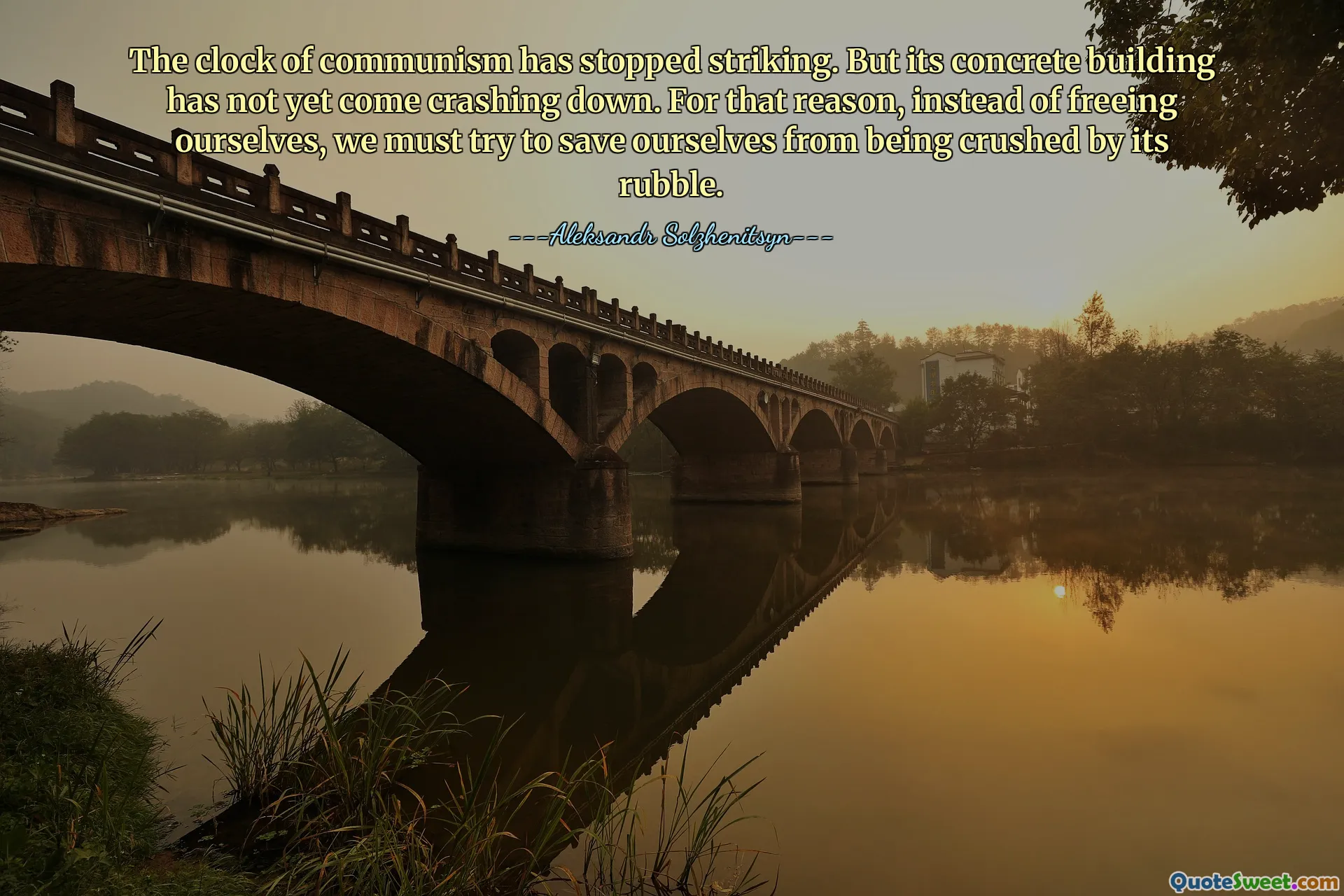
The clock of communism has stopped striking. But its concrete building has not yet come crashing down. For that reason, instead of freeing ourselves, we must try to save ourselves from being crushed by its rubble.
This quote vividly captures the lingering shadow of a failing regime and the imminent danger that remains even after its apparent collapse. The metaphor of the clock stopping indicates the cessation of active oppression or ideological enforcement; however, the physical and institutional remnants—represented by the concrete building—persist as dangerous debris. It highlights a critical insight: overthrowing a system does not automatically eliminate all its residual structures and consequences. The danger lies not only in the active tyranny but also in the debris that can still pose threats—be it ideological remnants, bureaucratic inertia, or the literal ruins of oppressive infrastructure. The call to act carefully, to prevent ourselves from being crushed by the rubble, underscores the importance of deliberate and cautious transition phases. It's a reminder that liberation is a process riddled with risks, and the aftermath of systemic failure can sometimes be as perilous as the system itself. Practically, it advocates for vigilance, strategic planning, and the necessity of dismantling oppressive legacies with care. Historically, numerous revolutions and regime changes have taught us that the aftermath can be chaotic and dangerous if proper measures aren't taken to clear away the old order. This quote encapsulates a timeless truth about political upheaval and reminds us of the importance of vigilance even after victory is proclaimed. It underscores that true freedom involves not just removing oppressive regimes but also carefully managing the residues and legacies they leave behind, ensuring safety and stability in the transition period.











